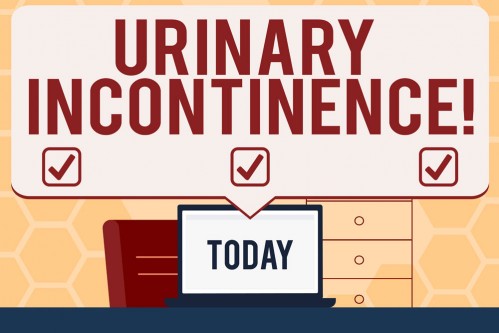
When Pregnancy Goes Past the Due Date
The length of a pregnancy is thought to be about 280 days or 40 weeks. It is not unusual for pregnancies to last longer than 40 weeks. Anywhere between 37 42 weeks is considered a term pregnancy. A pregnancy that lasts longer than 40 weeks may be called a postdates, post-term or prolonged pregnancy.
What is an estimated due date?
It is important to keep in mind that estimated due dates are just that - they are best guesses based on the information available (such as the date of your last menstrual period or the results of an ultrasound). Only about 5 in 100 people give birth on their due date.
Why do we pay attention to a postdates pregnancy?
Most babies are born healthy, regardless of whether they arrive at term or later. However, certain risks begin to increase after about 41 weeks of pregnancy, rising even higher after 42 weeks of pregnancy.
Risk of stillbirth or death in the first week of the baby's life
- 40 weeks - About 3 in 1000
- 41 weeks - About 1 in 1000
- 42 weeks - About 5 in 1000
When pregnancy lasts longer than 41 weeks, there is an increased risk of problems arising in labor for which a cesarean section may be required.
Risk of meconium aspiration syndrome
- 40 weeks - About 3 in 1000
- 41 weeks - About 5 in 1000
- 42 weeks - About 5 in 1000
Babies born at 41 weeks and later are more likely to release a sticky poo called meconium into the uterus. Meconium usually is not a problem, but if your baby breathes meconium into their lungs, they can develop serious breathing problems (meconium aspiration syndrome). Babies who breathe meconium into their lungs receive care in a nursery or newborn intensive care unit (NICU). Most babies with meconium aspiration syndrome recover quickly.
- Babies born at 41 weeks and later are more likely to require the care of specialists and be admitted to the neonatal intensive care unit (NICU).
It is important to keep in mind that most postdates pregnancies are NOT associated with major or long-term complications. While the risk of certain complications is higher, the overall risk is still low. It is also difficult to predict whether you or your baby will develop problems because of postdates pregnancy.
What might happen if your pregnancy is postdates?
You might feel impatient. You, your partner, and your family and friends may have prepared for your baby's arrival. You might be excited to meet the new member of your family. You may also feel physically uncomfortable - your back might ache, and you may have a hard time getting comfortable enough to sleep.
Your provider may recommend increased monitoring of your baby's wellbeing. Monitoring activities that your provider may offer include:
- Counting how often your baby kicks during a specific time.
- A non-stress test (NST) is a period of monitoring your baby's heart rate using continuous fetal monitoring.
- A biophysical Profile (BPP)- is a test using ultrasound to measure:
- the amount of water (amniotic fluid) surrounding your baby.
- the baby's movements, muscle tone, practice breathing movements and the amount of water around the baby, assigning a score for each measurement (this is called a biophysical profile).
- your baby's growth.
In some situations, you may be offered the option of cervical ripening and labor induction. This is when labor is artificially started by one or more of these methods:
- Cervical Ripening- Giving you synthetic prostaglandin by inserting a gel, tablet, or pessary (like a tampon) into your vagina. Prostaglandin is a hormone that softens the cervix, so it dilates more easily. In some cases, prostaglandin will also cause the uterus to contract.
- Induction/Augmentation- Using an intravenous drip (a needle in your arm) to administer a synthetic version of oxytocin, another hormone that stimulates the uterus to contract.
- Induction/Augmentation- Rupturing your membranes or "breaking your waters" by making a small hole in the amniotic sac surrounding your baby in the uterus. This will often encourage the uterus to contract.
Some methods of induction take place in a hospital (prostaglandin gel, oxytocin); undergoing induction of labor may limit your options for where you give birth. Some providers will offer herbs, homeopathic remedies, acupuncture, nipple stimulation, or sweeping membranes (see below) for those who are interested in non-medical alternatives to induction, augmentation, and ripening.
Expectant management is the alternative to induction of labor. This is when you wait for labor to start while undergoing regular monitoring of your baby's wellbeing (see above for info on NST and BPP). If monitoring suggests that your baby is not continuing to thrive in your uterus, induction of labor may be recommended.
What else may help you to go into labor?
There are other methods that are thought to encourage labor naturally. Your provider may offer their clients membrane sweeping. Your provider will use their fingers to examine your vagina and assess your cervix. Depending on the degree of change to your cervix, your provider will stretch your cervix open (stretch) and pass their fingers between the inside of your cervix and the bag of waters that holds your baby (sweep). This may feel uncomfortable - you may even find it painful. Research suggests the sweeping shortens the time before the baby's birth by an average of 3 days.
Other methods used to start labor include castor oil, acupuncture, homeopathy, naturopathic and herbal remedies. Little research has been done to establish how well these methods work or to test the ideal circumstances for their use. Please check with your provider if you are interested in these alternative methods of starting labor.
Induction of labor compared to expectant management
One way that has been proposed to reduce the potential risks of postdates pregnancy is to induce labor once all pregnancies reach a certain point - for example, 41 or 42 weeks. Some research suggests that a policy of labor induction can reduce the already small risk that your baby will die during labor or afterward. One problem with this approach is that hundreds or thousands of people will require induction to prevent a small number of serious injuries or deaths. Plus, the medical interventions used to stimulate labor and birth sometimes have their own risks:
- If your labor is induced, you may be more likely to need a cesarean section or an assisted vaginal delivery (with forceps or vacuum).
- If your labor is induced, your baby may be more likely to have breathing problems or require admission to a neonatal intensive care unit.
Ultimately, there is little good-quality research to suggest that one option offers clear advantages over the other. What this means is that decisions about whether to choose induction of labor or expectant management can be difficult to make.
As long as your baby is healthy and well-positioned for labor, your chances of having a normal and uncomplicated birth may be highest if you wait until 42 weeks for your labor to begin on its own. Monitoring of your baby's wellbeing in the meantime will help ensure that your baby continues to do well and will help your provider determine whether induction may be advisable. If monitoring suggests that your baby is no longer thriving in your uterus, choosing to undergo induction of labor before more serious problems develop may offer the best chance for normal and uncomplicated birth.
Will a postdates pregnancy affect your choice of birthplace?
Having a postdates pregnancy does not necessarily mean you cannot plan to deliver at the birth center. However, once a woman is 42 weeks pregnant, she must deliver at the hospital.
Because some methods of induction take place in a hospital (prostaglandin gel, oxytocin), undergoing induction of labor may limit your options for where you give birth.
Babies born at 41 weeks and later are more likely to release meconium. If you are laboring out of a hospital and your provider notices a certain type of meconium, they may advise you to transfer to the hospital.

Related Articles

Obstetrics and Gynecology
Medtronic Bladder Control Therapy
Evidence suggests that breakdowns in the bladder-brain communication pathway may be a root cause of...

Obstetrics and Gynecology
What Is Covered in a Well-Woman Exam?
Now is the time to find out what makes you feel happy, healthy, and strong. Your health is...

Obstetrics and Gynecology
OakLeaf Clinics Opens a Mothers' Milk Depot and Dispensary
Families in Eau Claire and the surrounding area can purchase pasteurized human donor milk or donate...

Obstetrics and Gynecology
Types of Urinary Incontinence
Stress Incontinence Urine leaks when pressure is exerted on the bladder by coughing, sneezing,...
